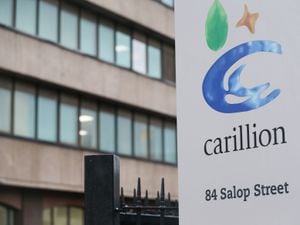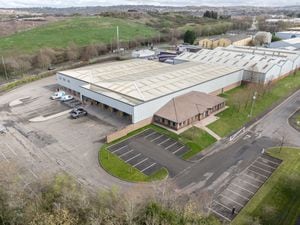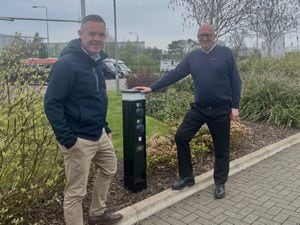PwC to pocket £44m in taxpayer's cash after Carillion collapse
Carillion’s administrators are to pocket £44.2 million in public cash for its work handling the aftermath of the Wolverhampton based firm’s collapse over the past year.

But PricewaterhouseCoopers has been accused of “milking the cash cow dry” by MPs who also said the firm has been given a “licence to print money.”
PwC has also been criticised for a potential conflict of interest in its role managing the Carillion bankruptcy owing to its work for Carillion’s pension schemes and subsidiaries before the collapse.
The company was appointed by the Government to work with the Official Receiver to help minimise disruption and costs in the wake of Carillion's collapse.
Frank Field, head of the Parliamentary work and pensions committee, said: “A year on from Carillion’s demise there was still nothing to stop greedy, ruthless or just complacent directors taking a one-way bet with the livelihoods and pensions of their workers, with their small business suppliers and with the UK taxpayer.
“They are ably assisted by a merry little band of advisers and auditors, conflicted at every turn and with every incentive to milk the cash cow dry – right down to reappearing as butcher to flog off the collapsed remains for a hefty cut, as PwC did.”
Rachel Reeves, who heads the business committee, said: “Carillion’s failure was a tale of corporate greed and mismanagement, but a year on it feels like few lessons have been learned by businesses, investors or government.”
Outsourcing and construction group Carillion – which had its base in Salop Street – entered liquidation on January 15 last year with liabilities of nearly £7 billion.
PwC still has 38 people working on the insolvency, down from 155 last year, and is charging an average rate of £345 per hour.
It has so far recovered £413m of assets.
A PwC spokesman said: "The Official Receiver applied to the Court to appoint PwC to resource a liquidation of exceptional size and complexity as quickly and effectively as possible.
"We helped keep public services, such as the maintenance of prisons, hospitals, roads and schools, running safely across the country - minimising the disruption caused by the collapse - while transferring contracts and saving thousands of jobs.
"Without this work the cost to UK jobs, the economy and the taxpayer would have been considerably higher.
"From the outset it has been clear that PwC’s fees for assisting the Official Receiver on the liquidation of Carillion are subject to scrutiny and approval by the Official Receiver and the Court."





